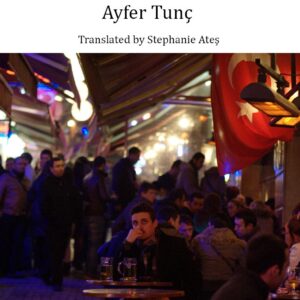By Dušan Šarotar
Translated from the Slovene by Rawley Grau
ISBN: 978-1-912545-254
In the narrow corridors and dark rooms of the once-elegant Hotel Dobray in the sleepy town of Sóbota, in a forgotten land wedged between Hungary and Yugoslavia, human destinies collide like the billiard balls in the hotel’s casino. It is late March 1945 and the long war is nearing its end. The Soviet Union’s Red Army will soon arrive to liberate the town, although no one knows what to expect. József Sárdy, the ruthless leader of a small Hungarian occupation unit stationed at the Hotel Dobray, is preparing for his final battle, even as his debauched soldiers succumb to melancholy and despair. Local industrialist Josip Benko hopes the end of the war will mean large profits for his factory, yet he is doing all he can to save his dying world. And Linna, a former singer who works as a prostitute in the hotel, must confront her divided loyalties. But before her song falls silent, the Jewish merchant Franz Schwartz, one of the few to survive the horrors of Auschwitz, returns to Sóbota on foot, pursuing the strains of a remembered violin.
A poetic and pensive narrative, Dušan Šarotar’s Billiards at the Hotel Dobray was the first novel to treat the fate of the Jews in Slovenia during the Holocaust. At the same time, it is an homage to the author’s hometown and the souls that still resonate in his memories.
“a novel in which tiny acts bear enormous significance, acts of heroism, cowardice, cruelty and honesty…”
Charlie Connelly, The New European
“The omniscient, distanced third person perspective of the all-seeing eye only serves to heighten the emotional intensity. Šarotar masterfully maintains this intensity, letting it reverberate like the a violin strung too tight, right through to the end, as all the threads and stories are wound together but ultimately left unresolved, hanging in the air. He ends his narrative with a timeless, unanswerable question. One that, as nationalism is making a resurgence, we would do well to attend to.”
“Šarotar’s lyrical writing has that rare quality to show character as being both within us and outside of us. He portrays people’s complex motivations and reactions as they interweave with location and circumstances.”
Prlease also see Šarotar’s other novel with us – Panorama:






